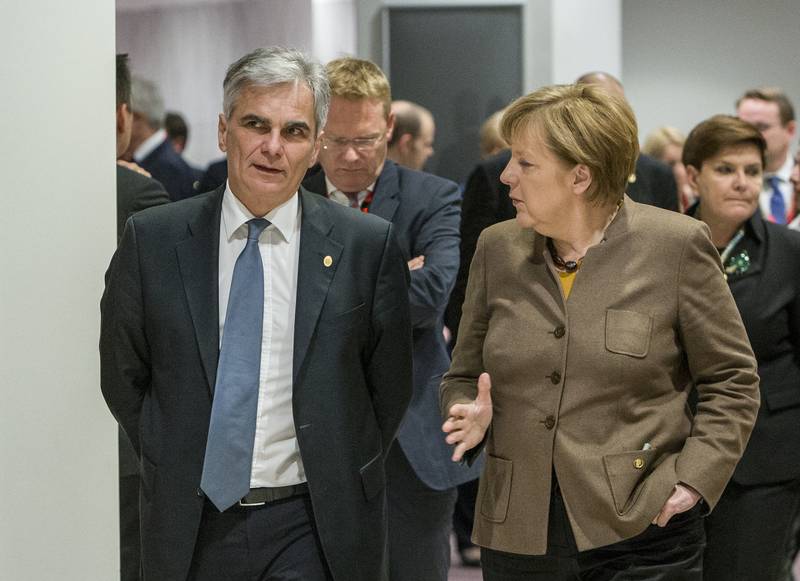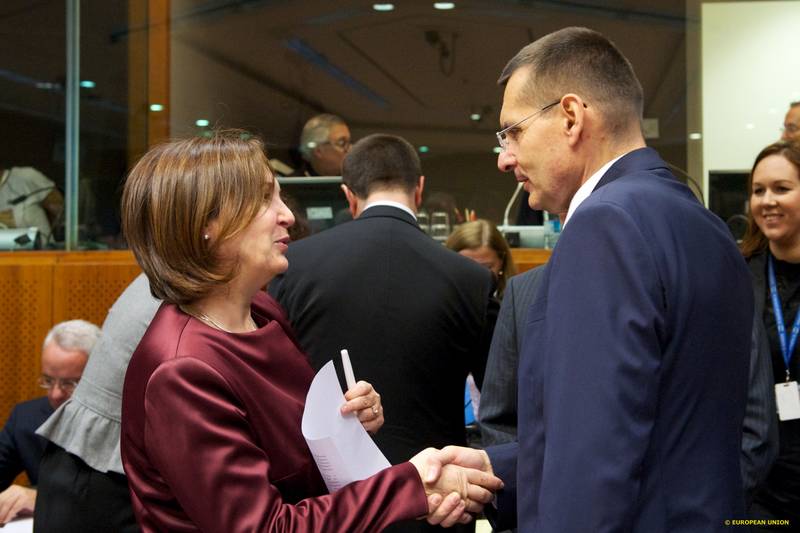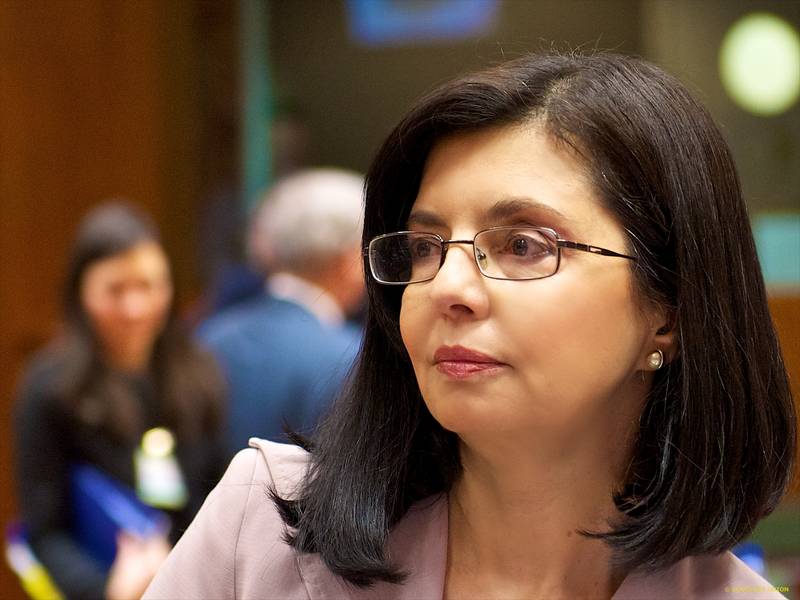Greece Under Pressure Also in Terms of Schengen
Ralitsa Kovacheva, March 12, 2012
 Germany and Austria threatened to reinstate border controls, if Greece failed to take measures to secure its border with Turkey. "The border is open like a barn door!," Austrian Home Affairs Minister Johanna Mikl-Leitner said, cited by international news agencies. "The question still remains what happens when a country is not capable of securing its borders, as we see in Greece," German Justice Minister Hans-Peter Friedrich supported her. Seven Member States have joined Austria's and Germany's call. The countries have also submitted a letter with specific proposals.
Germany and Austria threatened to reinstate border controls, if Greece failed to take measures to secure its border with Turkey. "The border is open like a barn door!," Austrian Home Affairs Minister Johanna Mikl-Leitner said, cited by international news agencies. "The question still remains what happens when a country is not capable of securing its borders, as we see in Greece," German Justice Minister Hans-Peter Friedrich supported her. Seven Member States have joined Austria's and Germany's call. The countries have also submitted a letter with specific proposals.
The answer of the question posed by the German minister is in the European Commission`s proposals presented in September 2011 that have been subject to difficult discussions in the Council of interior ministers. As explained by a spokesman of EU Home Affairs Commissioner Cecilia Malmstrom, "some member states have clearly stated that this is not the way they want to go, and other member states have expressed some support."
The Commission's proposals for reform of the Schengen legislation include amendments to the Schengen Border Code in order to provide for common rules for temporary reintroduction of border control at internal borders in exceptional circumstances and the establishment of an evaluation and monitoring mechanism to verify the application of the Schengen acquis. The proposals came after strong pressure from the member states and increased tension, due to the large number of migrants from North Africa. The situation sparked a conflict between Italy and France, but then Rome and Paris came out with a joint initiative for reform of Schengen, including allowing member states to temporarily reinstate border controls in the event of "exceptional difficulties".
 Although the current Schengen rules do not allow return of border control, there has already been a precedent - in May 2011 Denmark restored unilaterally border controls on grounds of "enhanced measures to fight cross-border crime." The Netherlands announced plans to install surveillance equipment along its borders with Belgium and Germany because of illegal immigration. What the Commission`s proposals aim is namely to prevent such unilateral actions, and the decision to temporarily restore border controls to be taken at Community level (by the Commission), taking into account the position of all countries.
Although the current Schengen rules do not allow return of border control, there has already been a precedent - in May 2011 Denmark restored unilaterally border controls on grounds of "enhanced measures to fight cross-border crime." The Netherlands announced plans to install surveillance equipment along its borders with Belgium and Germany because of illegal immigration. What the Commission`s proposals aim is namely to prevent such unilateral actions, and the decision to temporarily restore border controls to be taken at Community level (by the Commission), taking into account the position of all countries.
In parallel, "a mechanism must also be put in place to allow the Union to handle situations where either a member state is not fulfilling its obligations to control its section of the external border, or where a particular portion of the external border comes under unexpected and heavy pressure due to external events," as stated in the Communication on Migration, presented last May. The Union has also set a target to complete the Common European Asylum System in 2012. At this stage, however, these are only good intentions.
At the meeting of Justice and Home Affairs Council on 8 March, the Ministers of Interior  discussed the particular situation in Greece, defined by Commissioner Cecilia Malmstrom as "worrying." She explained that the European Commission presented a report to the ministers on the basis of its mission in Greece. The report shows that there has been progress in many areas of the Action Plan, adopted by the Greek government, but much remains to be done.
discussed the particular situation in Greece, defined by Commissioner Cecilia Malmstrom as "worrying." She explained that the European Commission presented a report to the ministers on the basis of its mission in Greece. The report shows that there has been progress in many areas of the Action Plan, adopted by the Greek government, but much remains to be done.
From her words it becomes clear that the problem of the Greeks with their border protection is the same as with their management of public finances: "There is money available but we need to improve the administrative procedures, so the Greek authorities can really make use of these funds in the best way." The European Commission has earmarked 300 million euros for Greece to tackle illegal migration. "We are willing to help [...] but of course the main responsibility lies with Greece," the Commissioner noted.
 We have approved new instruments to ensure solidarity, Danish Minister of Justice Morten Bodskov said. He described the measures, adopted by the ministers, as "a genuine and practical assistance" to countries under increased migrant pressure. They provide for enhanced cooperation between the countries and the EU Agency for Operational Cooperation at External Borders – Frontex, as well as the European Asylum Support Office. Particularly important is cooperation with "third countries", where the largest migrant pressure comes from, Minister Bodskov explained.
We have approved new instruments to ensure solidarity, Danish Minister of Justice Morten Bodskov said. He described the measures, adopted by the ministers, as "a genuine and practical assistance" to countries under increased migrant pressure. They provide for enhanced cooperation between the countries and the EU Agency for Operational Cooperation at External Borders – Frontex, as well as the European Asylum Support Office. Particularly important is cooperation with "third countries", where the largest migrant pressure comes from, Minister Bodskov explained.
Especially for Greece the Danish Presidency has proposed to define the five key countries in this respect and to discuss with them the return of illegal immigrants. The biggest problem comes from Turkey - last year alone over 61,000 illegal immigrants have been detected at the Greek-Turkish border. Addressing the issue, however, is directly related to the blocked negotiations for Turkish membership in the EU. The Union and Turkey have prepared a readmission agreement, which, however, Ankara has been refusing to sign until the EU agrees to ease visa requirements for Turkish citizens.
 Werner Faymann, Angela Merkel | © Council of the EU
Werner Faymann, Angela Merkel | © Council of the EU Rumyana Bachvarova, Petre Toba | © Council of the EU
Rumyana Bachvarova, Petre Toba | © Council of the EU Meglena Kuneva | © Council of the EU
Meglena Kuneva | © Council of the EU